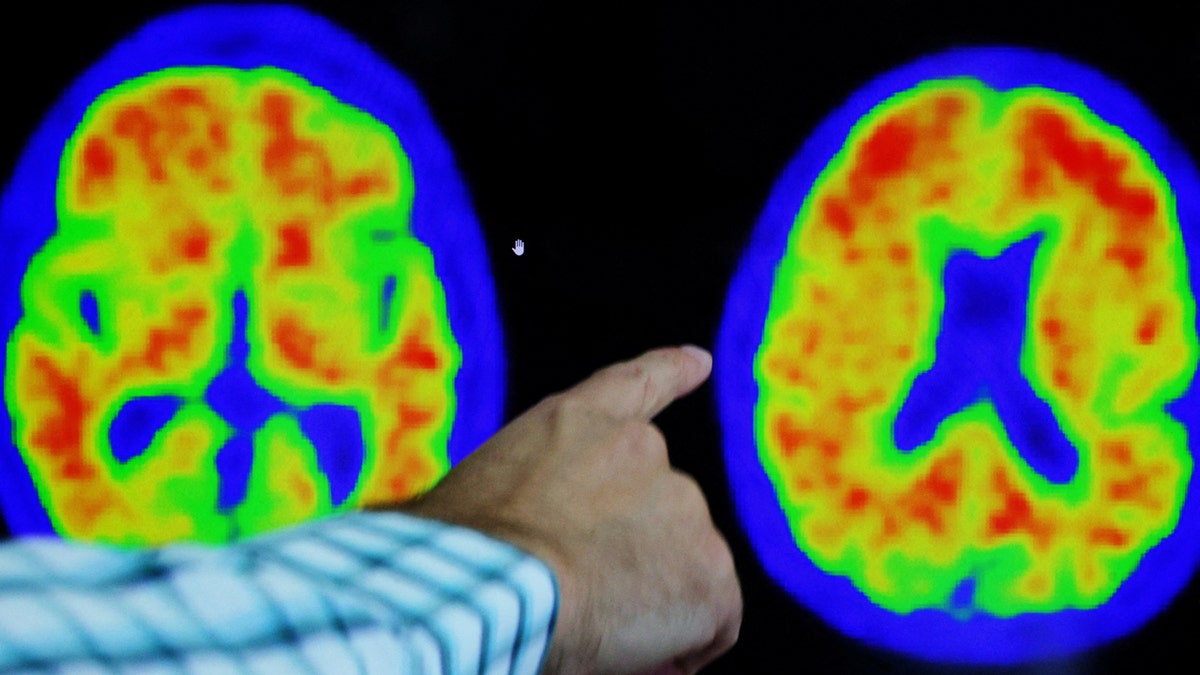Erectile dysfunction medication could reduce the risk of Alzheimer’s disease, a new study is suggesting, though some experts cast doubt on the link between the two.
In a study by University College London researchers in the U.K., men who were prescribed phosphodiesterase type 5 inhibitors, otherwise known as erectile dysfunction drugs, were 18% less likely to develop Alzheimer’s disease years later.
The study, published in the journal Neurology by the American Academy of Neurology, surveyed 269,725 men who had been diagnosed with erectile dysfunction without any memory problems or cognitive deficits.
STUDY FINDS THAT PROTEINS MAY PREDICT WHO WILL GET DEMENTIA IN 10 YEARS BASED ON BLOOD SAMPLES
Among the respondents, 55% were taking erectile dysfunction medication, including sildenafil (Viagra), tadalafil (Cialis), vardenafil and avanafil.
These men were compared to the remaining respondents, who were not prescribed these drugs.
Researchers adjusted the results for factors like age, underlying health conditions, smoking status and co-prescribed medications.
The findings pointed to an 18% Alzheimer’s risk reduction in patients who were prescribed erectile dysfunction drugs after a follow-up period of about five years.
HOW ARE PRESCRIPTION DRUGS NAMED? A DRUG DEVELOPMENT EXPERT SHARES THE PROCESS
The strongest association was among men who took these drugs more regularly, the study found.
Erectile dysfunction drugs “act on a cell-signaling messenger that has also been investigated for its links to memory,” according to a UCL press release.

“These drugs are also able to cross the blood-brain barrier and may affect brain cell activity,” the press release stated.
Animal research has discovered that erectile dysfunction medication has “some neuroprotective benefits,” according to the UCL researchers.
THE 8 BIGGEST ALZHEIMER’S DISEASE MYTHS — AND THE TRUTHS BEHIND THEM
Lead study author Dr. Ruth Brauer, of the UCL School of Pharmacy, commented in the release on the progression of new Alzheimer’s treatments.
“Although we’re making progress with the new treatments for Alzheimer’s disease that work to clear amyloid plaques in the brain for people with early stages of the disease, we desperately need treatments that can prevent or delay the development of Alzheimer’s disease,” she said.
“More research is needed to confirm these findings, learn more about the potential benefits and mechanisms of these drugs, and look into the optimal dosage.”
“This observational study is based on electronic health care records.”
A randomized, controlled trial including both men and women is warranted, Brauer added.
Ozama Ismail, PhD, director of scientific programs at the Alzheimer’s Association, was not involved in the study but commented on the findings in a statement to Fox News Digital.
ALZHEIMER’S DISEASE FOUND TO BE TRANSMITTED THROUGH MEDICAL PROCEDURES DECADES AGO, STUDY FINDS
“While this study is interesting and adds to a potential association, there is no evidence that these drugs are able to treat Alzheimer’s disease,” he said.
“This observational study is based on electronic health care records and cannot determine if the connection is meaningful without further exploration.”

Further research and clinical trials are a “necessary step” before considering erectile dysfunction medications as a treatment for Alzheimer’s, Ismail noted.
“Such trials would need to include diverse participants — including women — to conclusively determine if this class of drug can meaningfully treat Alzheimer’s disease,” he said.
An “important limitation” of the study is that Alzheimer’s diagnoses were not determined using “gold standard” testing, the expert said, which would include “imaging biomarkers and/or assessment at autopsy.”
CLICK HERE TO SIGN UP FOR OUR HEALTH NEWSLETTER
Ismail warned that patients should not use over-the-counter erectile dysfunction drugs to prevent Alzheimer’s or other forms of dementia.
“Always consult with your physician before starting or changing your medications,” he advised.

Although the study was limited, Ismail said, it highlights a “potential new avenue for drug repurposing.”
He added, “The repurposing of existing, approved treatments can be a valuable part of drug development because, through already completed testing, we know much about their safety and side effects.”
“This can sometimes reduce the length and cost of studies needed for the new indication.”
Repurposing drugs for the treatment of Alzheimer’s would require new studies to be conducted over longer periods of time and in older people that “reflect the diversity of individuals living with Alzheimer’s disease,” Ismail said.
Fox News Digital reached out to the UCL researchers for additional comment on the study.
For more Health articles, visit foxnews.com/health.
Read the full article here